Gaining Confidence as a Female Competitor
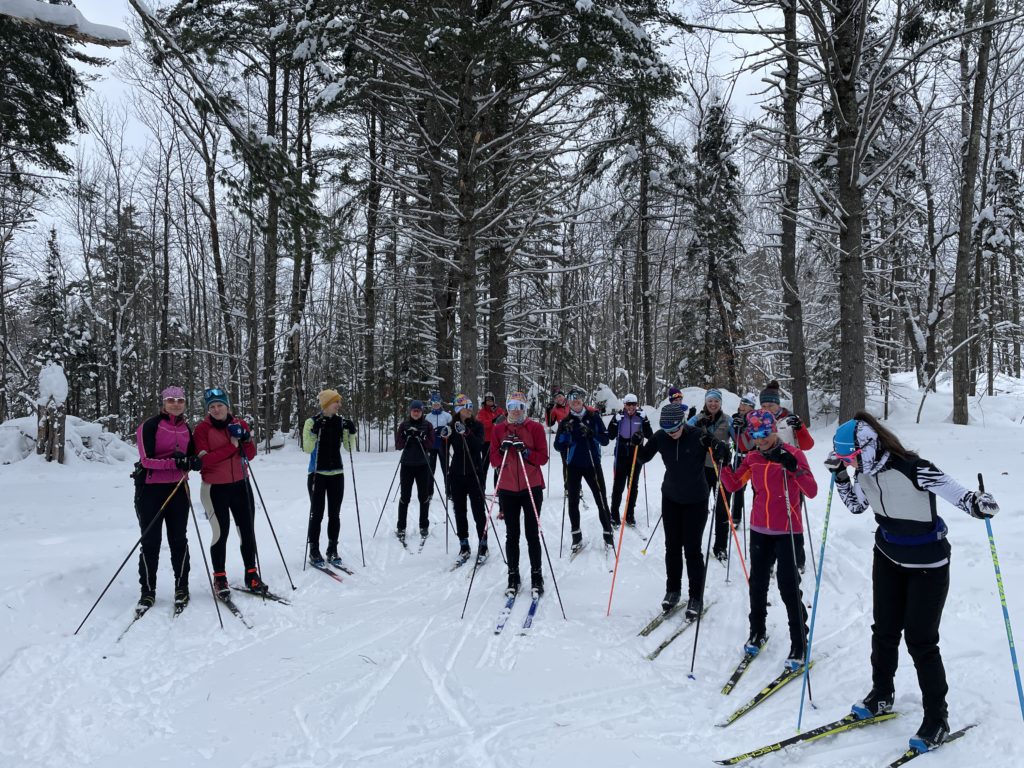
Last winter I had the privilege of speaking and coaching at both the “We Rise” Rossignol Women’s Ski Clinic along with the Birkie Ski de She Ski Camp. It was very encouraging to see so many women desiring to learn how to improve their cross-country ski technique. Over four hundred women competed in this incredible women’s only event. Many women lined up on the starting line for the first time racing in the 10 km, 20 km or 30 km race events. At both of these events I was able to speak to women about strategies that have helped me increase my confidence in ski racing. I am resharing this message in hopes that it will help other women become more confident in all their athletic endeavors.

In my twenty-five years of ski coaching youth, teens, and adults, I have observed a common thread of insecurity amongst many of these athletes. Female athletes in particular have struggled more with confidence and race anxiety issues than men athletes that I have coached.
The lack of confidence hits close to home as I too have struggled with performance anxiety throughout my years of racing in high school, college, and citizen race competitions. If I could instill the same confidence and wisdom that I currently possess into my teenage 1989 mindset, my ski performance would have been much more successful and satisfying as a young competitor.
My conclusions were confirmed by the Journal of Sport Science research on the topic of confidence in sports performance (Kate Hayes & Owen Thomas, 2009). The results found that confident individuals tend to be more skilled and effective in using cognitive resources necessary for sporting success. Furthermore, confidence has been found to influence the coping processes of athletes. More specifically, athletes who possess a strong belief in their ability reported being able to peak under pressure and cope successfully with adverse situations during the competition (Cresswell & Hodge, 2004). Having raised and coached both of my girls on their high school team, I have observed their own struggles with racing anxiety relating to confidence issues.
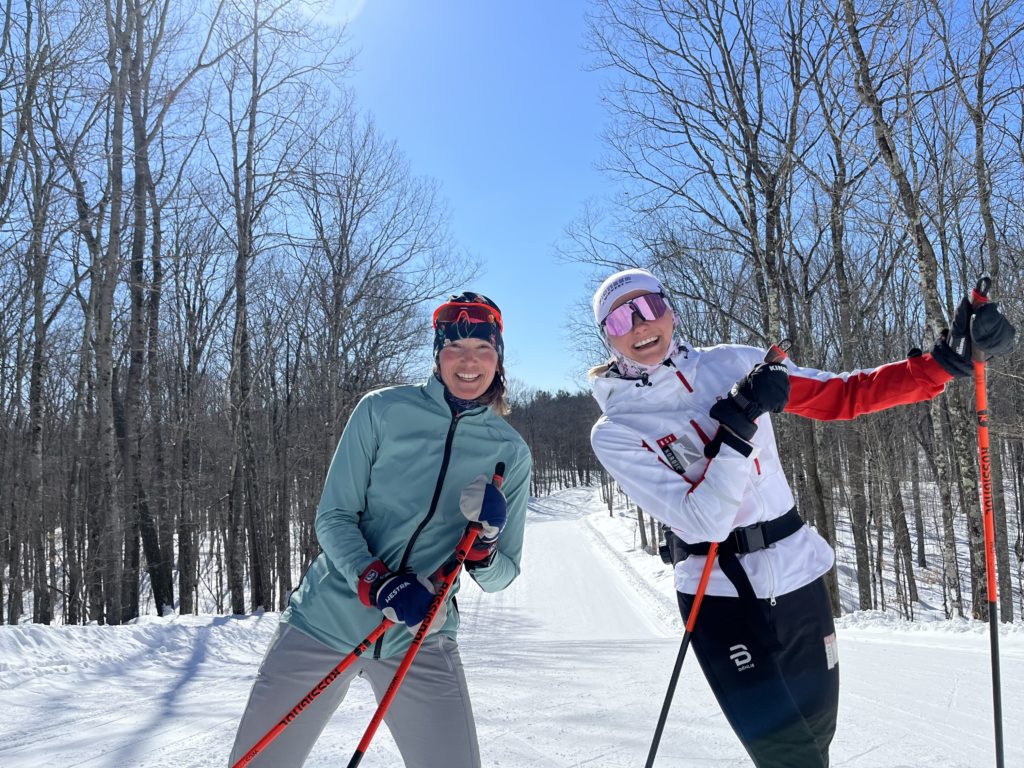
The study concluded there are several factors that influence our confidence in competition. Men struggled more with confidence issues relating to injuries. For female athletes, poor preparation, coaching, psychological factors, and expectations were also deemed important in sports performance relating to confidence. Throughout my competitive racing career, my confidence level has been influenced by all of the above factors.
If you struggle with race anxiety performance along with self-confidence, you are not alone. Talking about these struggles is the first step to improving your mental focus before, during, and after a race competition. There are several mental strategies that I have developed throughout my racing career which have produced increased confidence in competition. I hope the below mental strategies will be helpful to you as a coach, athlete, or parent.
Strategy #1: Let it go!
There are many elements in training and performance that we can take charge of on a regular basis. Maintaining a positive attitude (in both our thoughts and words) is one of the most important. If we decide to contemplate all the negative aspects of ourselves or the conditions of an upcoming race (maybe how slow our skis and body will be in the predicted below-zero temperature) then most likely these thoughts will come true.
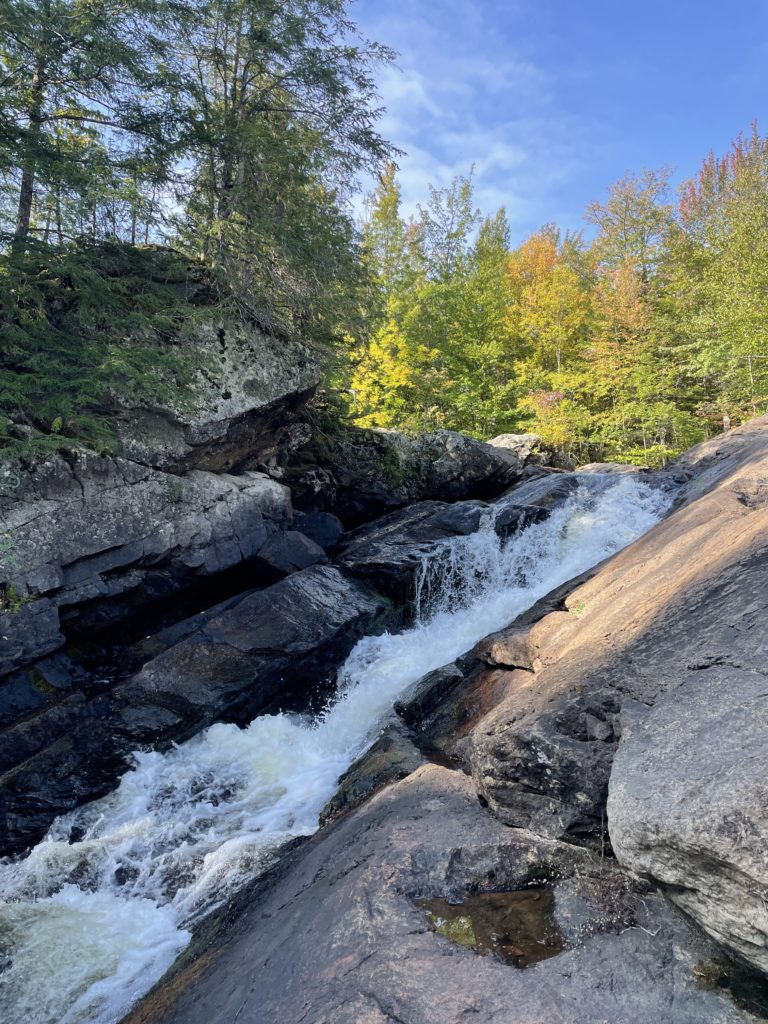
Last fall I went on a gravel bike-packing adventure trip with my husband for our twenty-ninth wedding anniversary. The Wisconsin gravel waterfall route was created by Dave Schlabowske who is a local biker enthusiast residing in Seeley, WI.
The 382-mile loop takes you past thirty waterfalls in Northern Wisconsin and parts of Michigan. The majority of the route is on gravel or sandy forest roads and the remaining miles are on mountain bike trails or “Davement”. “Davement” is a term that Dave’s friends coined for sections of the trail that are too overgrown to actually pedal. These old logging roads and rough ATV/snowmobile trails require you to hike a bike. While trying to reach one of the waterfalls my husband and I came upon one of these “Davement” sections that was an overgrown, swampy, mosquito-infested ATV trail.
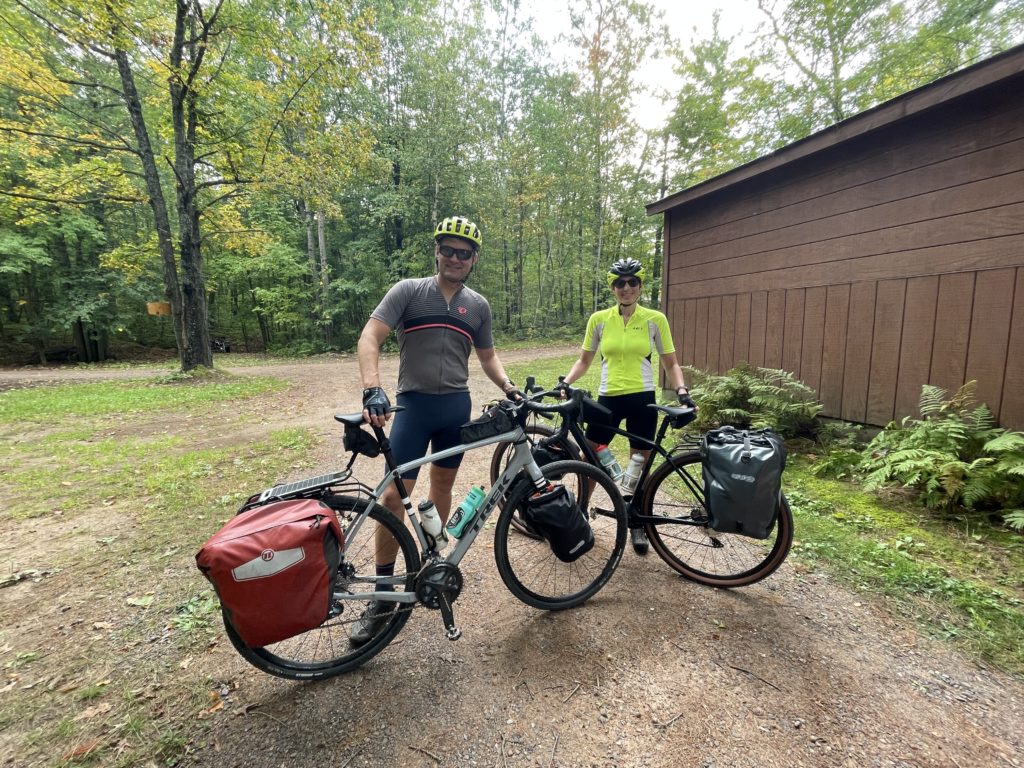
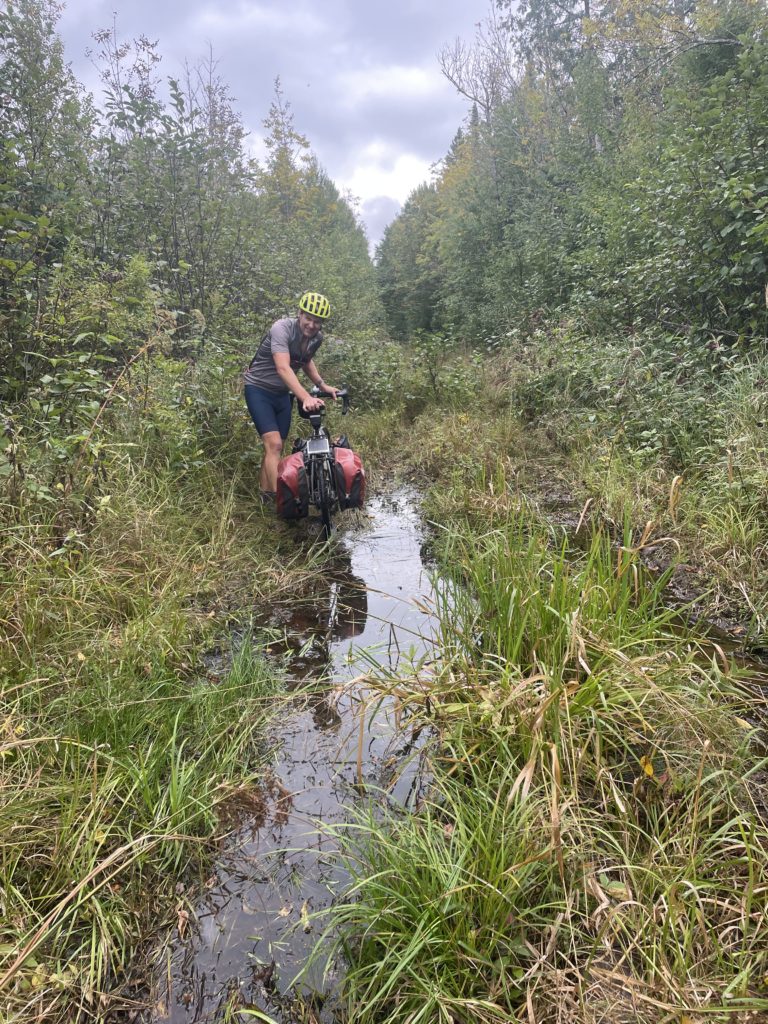
We began to bike through the overgrown ATV trail but ended up mostly hiking our bikes as our feet sank into the mud and mucky water. I was not a happy camper. Soon my attitude became negative and full of complaining. I began to grumble and say a few choice words to my husband as I fell into another muddy puddle of weeds.
At first, my husband began to laugh at my constant yelling and grumbling. Soon he grew tired of it and shouted, “Get a grip on yourself Kim, this is not the end of the world.” He was right of course. It was the most miserable hour of the entire trip, but I would have enjoyed the time much better if I could have laughed at the situation instead of growing frustrated.
As ski competitors, we cannot control everything that life throws at us. A pole breaks in the middle of the race, our kick wax is not working, a lingering injury starts to fester or we come down with COVID-19 a few days before our peak competition. It can become very easy to get discouraged and start to panic about our situation. I have spent many wasted hours and negative energy worrying about all of the uncontrollable elements.
It is much more productive to focus on the elements that we can control; our training preparation, our effort in a race, and most importantly our attitude in both good and difficult circumstances. Choosing to let go of worry will help us manage our overall stress and energy levels before and during a competition event.
Learning to let go and replacing those negative thoughts with positive ones can make all the difference. Some of the best juniors that I have coached were the most calm and easygoing individuals. They did not let anything shake them up too much and were able to compete well despite personal setbacks.
Strategy #2 Keep your eyes focused down the trail instead of behind you.
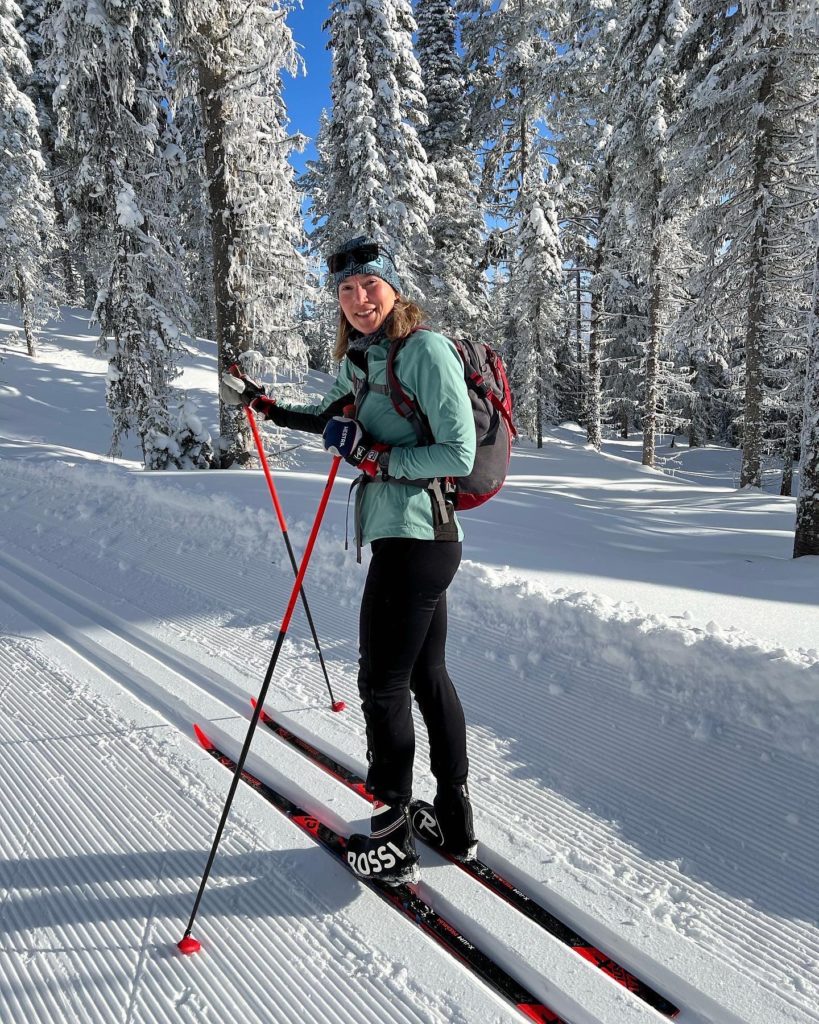
Comparing yourself to other competitors can be a very dangerous ground to tread. The comparison trap can cause many athletes to become less confident. As a young college racer at Bemidji State University in the early 1990’s I struggled with comparing myself to other competitors. Looking back I wish that I could have been a more encouraging teammate instead of comparing myself to others on the team based on performance.
You may have had your best Birkie performance but the results do not show this depending on how many elite racers were stacked up against you in the race. It can be especially difficult for young skiers who have not physically developed as quickly as their peers. Focusing on your own ability and racing goals is much more productive than comparing how you may stack up against the top skiers.
Celebrating our teammates’ victories can be difficult when we are focused too much on comparing ourselves to others. Remember that your results do not define who you are as a person. Only you can choose how you will define your worth. Focus on process goals for each competition. Set some race process goals ahead of time so that you can focus on these instead of comparing yourself to others. Process goals can be anything from starting fast at the beginning of a race, pacing correctly, finishing strong, using more V2 skate ski technique, or having a positive attitude.
Tip #3 Dream big and believe in yourself!
When I first started racing marathon competitions in my early twenties I was terrified of mass starts. Back then my racing confidence was quite low, and I would line up in the back row of the mass start area. I did not believe in my ability to ski at the same pace as some of the other top women’s marathon competitors. Not only that, I was fearful of getting passed or tangled up by other racers if I was to line up in the front.
In the late 1990s and early 2000’s Rossignol had a marathon racing team that I was privileged to be a part of. At first, I was very self-conscious wearing the Rossignol race suit, which put an expectation on me to have fast race results. Over the years my confidence has grown tremendously. I started to believe in my own abilities and began to dream big about the possibility of winning a marathon competition. After years of lining up in the back of a start line, I finally started moving up to the front. Eventually, I began to win races.

Today you can find me lined up at the front of the line with both male and female competitors. This did not happen overnight, it was a slow gradual process. Gaining confidence through ski racing has flowed into all areas of my life. In 2022, I launched a new business called Endurance Adventures and had a very successful year leading four adventure ski and bike trips. I hope these three confidence strategies of letting go, keeping your eyes focused down the trail, and dreaming big will help you gain confidence in both your skiing and life endeavors.
Kim Rudd
